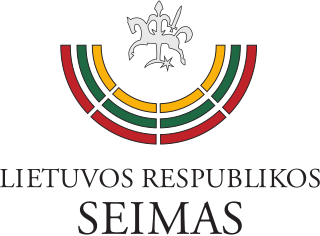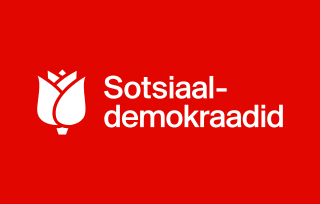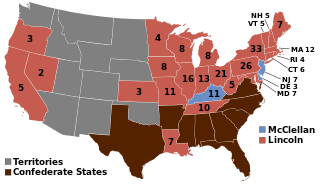This article relies largely or entirely on a single source .(February 2023) |
National Progressive Action was a centre-right political party in Monaco active in the 1990s.
This article relies largely or entirely on a single source .(February 2023) |
National Progressive Action was a centre-right political party in Monaco active in the 1990s.
The party won two seats in the National Council at the 1993 Monegasque general election. It was the first time since 1973 that the ruling National and Democratic Union had failed to win all 18 seats. [1]
Before the 1998 election, their two legislators Alain Michel and Patrick Medecin joined the National and Democratic Union.

The Free Democratic Party is a liberal political party in Germany.

The Social Democratic Party of Switzerland, also called the Swiss Socialist Party, is a political party in Switzerland. The SP has had two representatives on the Federal Council since 1960 and received the second-highest number of votes in the 2019 Swiss federal election.

Social Democracy, known as the Czech Social Democratic Party until 10 June 2023, is a social-democratic political party in the Czech Republic. Sitting on the centre-left of the political spectrum and holding pro-European views, it is a member of the Party of European Socialists, the Socialist International, and the Progressive Alliance. Masaryk Democratic Academy is the party-affiliated's think tank.
The Social Democratic Party of Lithuania is a centre-left and social democratic political party in Lithuania. Founded as an underground Marxist organisation in 1896, it is the oldest extant party in Lithuania. During the time of the Soviet Union, the party went into exile, emerging once again in Republic of Lithuania in 1989.

The Seimas of the Republic of Lithuania, or simply the Seimas, is the unicameral legislative body of the Republic of Lithuania. The Seimas constitutes the legislative branch of government in Lithuania, enacting laws and amendments to the Constitution, passing the budget, confirming the Prime Minister and the Government and controlling their activities.
Democratic Left Alliance-Labour Union was an electoral committee and a coalition of two Polish centre-left political parties: Democratic Left Alliance and Labour Union. At the national level, the alliance arose at the time of the 2001 parliamentary elections and continued through the 2004 elections to the European Parliament. The alliance came together again for the 2009 and 2014 European parliamentary elections.

The Social Democratic Party is a centre-left political party in Estonia. It is currently led by Lauri Läänemets. The party was formerly known as the Moderate People's Party. The SDE has been a member of the Party of European Socialists since 16 May 2003 and was a member of the Socialist International from November 1990 to 2017. It is orientated towards the principles of social-democracy, and it supports Estonia's membership in the European Union. From April 2023, the party has been a junior coalition partner in the third Kallas government.
The Liberal Party of Cuba, was one of the major political parties in Cuba from 1910 until the Cuban Revolution in the late 1950s, when it was exiled.

The Union Party is a conservative-liberal, agrarian political party on the Faroe Islands. The party wants to maintain the Faroe Islands' union with Denmark. On 24 October 2015, Bárður á Steig Nielsen succeeded Kaj Leo Johannesen as party leader.

The Union of Democratic Forces is a political party in Bulgaria, founded in 1989 as a union of several political organizations in opposition to the communist government. The Union was transformed into a single unified party with the same name. The SDS is a member of the European People's Party (EPP). In the 1990s the party had the largest membership in the country, with one million members, but has since splintered into a number of small parties totaling no more than 40,000 members. The SDS proper had 12,000 members in 2016.

At the national level, the Republic of Cyprus holds elections for its head of state, the President of Cyprus, and for its legislature, the House of Representatives.
The Democratic Party is a centre-right political party in Bulgaria led by Alexander Pramatarski. The party was a member of the European People's Party (EPP).

The unicameral Assemblée nationale or National Assembly is Guinea's legislative body. Since the country's birth in 1958, it has experienced political turmoil, and elections have been called at irregular intervals, and only since 1995 have they been more than approval of a one-party state's slate of candidates. The number of seats has also fluctuated.

Parliamentary elections were held in Serbia on 21 January 2007 to elect members of the National Assembly. The first session of the new National Assembly of the Republic of Serbia was held on 14 February 2007. The elections enabled the coalition of DS; DSS & G17+ to continue.

The 2009 European Parliament election in Italy was held on Saturday 6 and Sunday 7 June 2009, as decided by the Italian government on 18 December 2008. Italy elected 72 members of the European Parliament (MEPs).

The Netherlands is a European Parliament constituency for elections in the European Union covering the member state of Netherlands. It is currently represented by twenty-nine Members of the European Parliament. Until the 2009 European Parliament election, it excluded the Dutch in the Netherlands Antilles and Aruba.

The 1992 United States elections elected state governors, the President of the United States, and members of the 103rd United States Congress. The election took place after the Soviet Union crumbled and the Cold War ended, as well as the redistricting that resulted from the 1990 census. Often considered "The Year Of The Woman," these elections brought an increased number of female politicians to Washington such as Dianne Feinstein (D-CA) and Carol Moseley Braun (D-IL). Governor Bill Clinton of Arkansas defeated incumbent President George H. W. Bush and businessman Ross Perot in the presidential election. The Democratic Party maintained their control of both chambers of Congress. This is the first Democratic trifecta since the Republican victory in the 1980 elections and the last one during the 20th century and the last one overall until 2008.

The 1864 United States elections were held on November 8, 1864. National Union President Abraham Lincoln was elected to a second term, while the Republicans added to their majorities in Congress. The elections were held during the American Civil War. Lincoln would be assassinated shortly into his second term.

The first Rojava regional elections were held on 1 December 2017. Local councils for the Jazira Region, Euphrates Region and Afrin Region were elected as well as for the subordinate cantons, areas and districts of the regions of Rojava. This followed the communal elections that were held on 22 September and was to be followed by a federal parliamentary election of the Syrian Democratic Council, the region's highest governing body, initially scheduled for January 2018, but was later postponed.